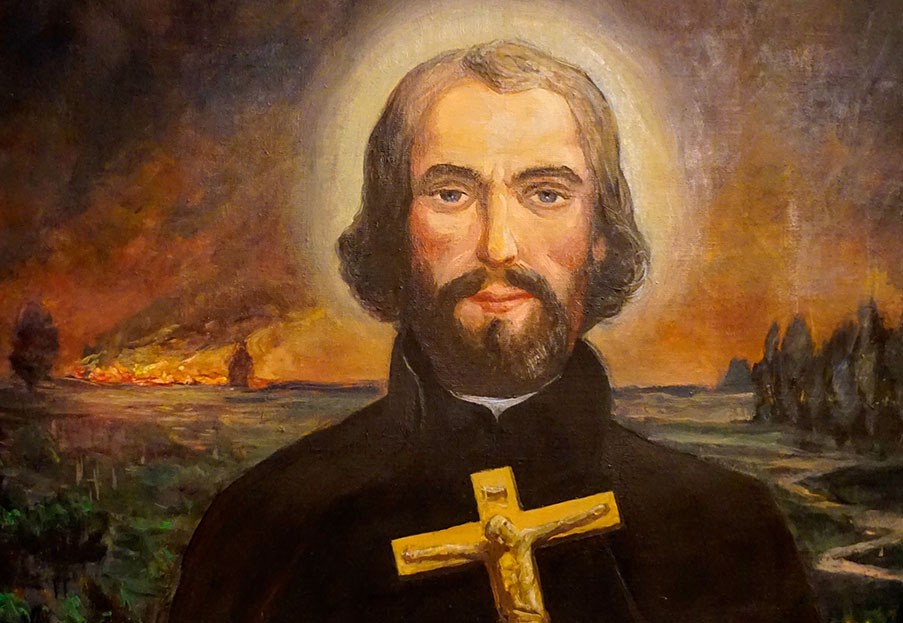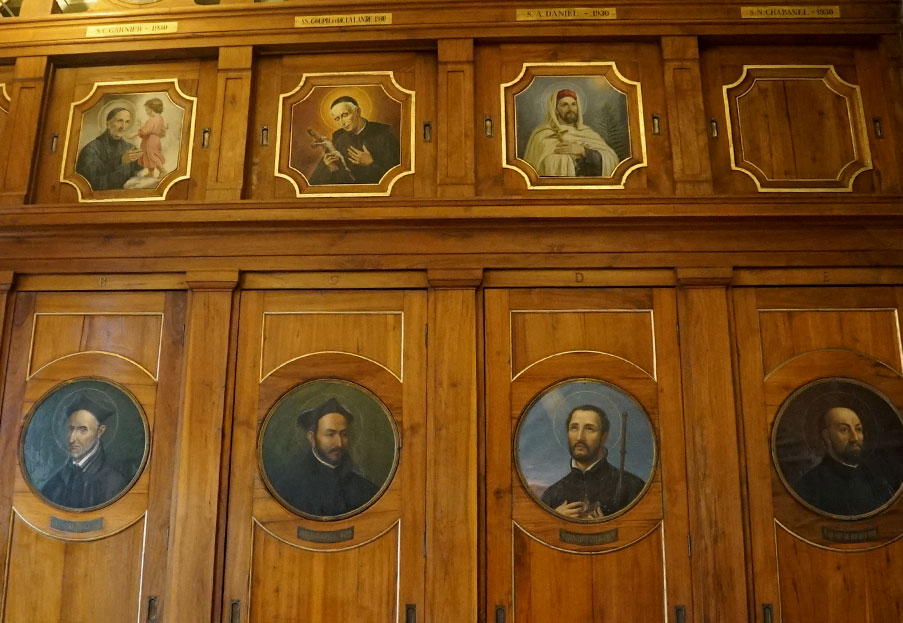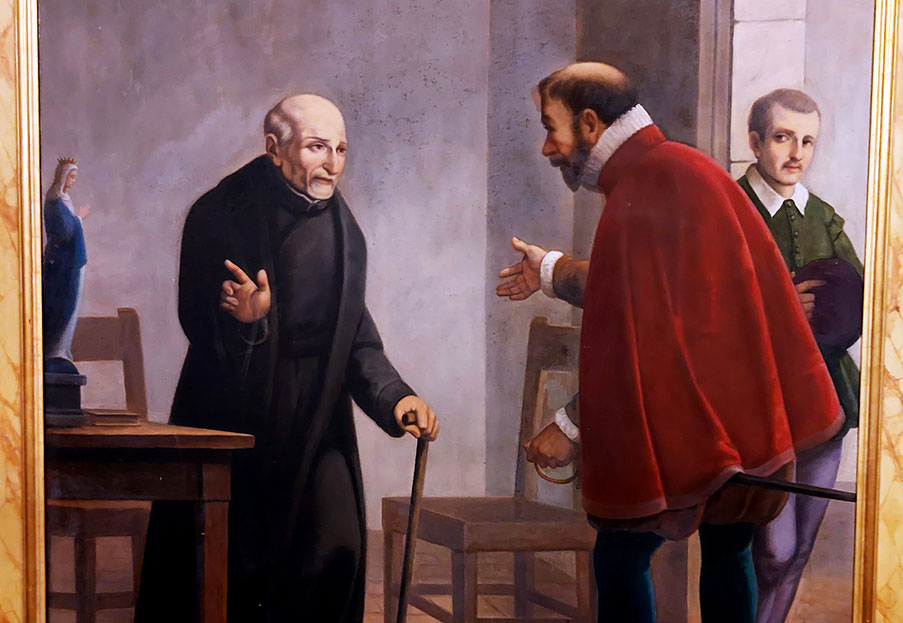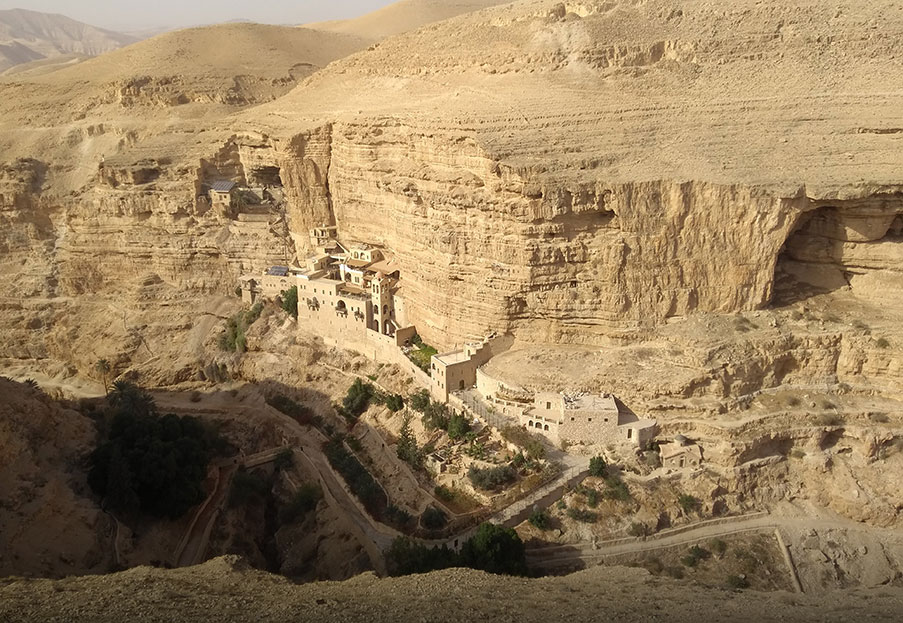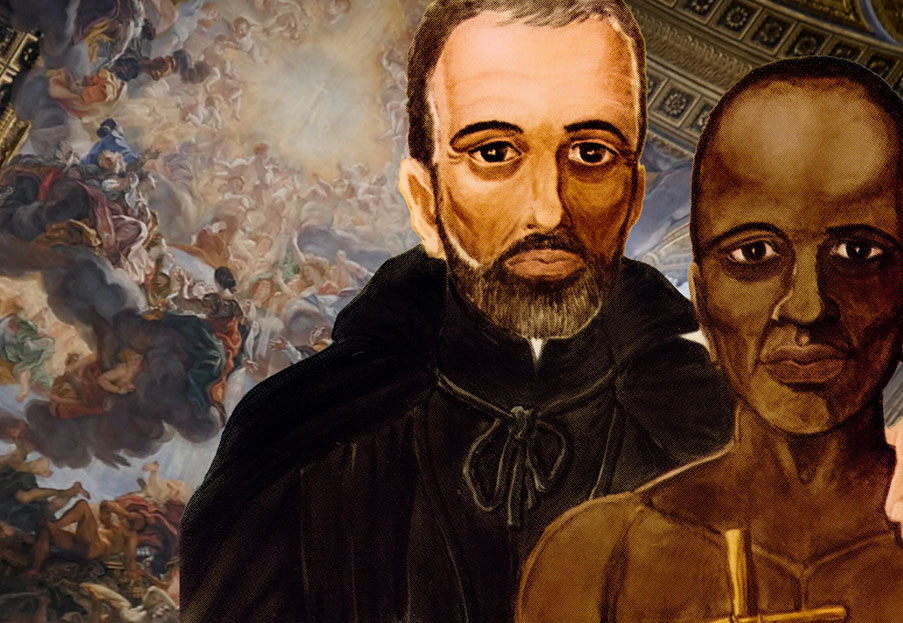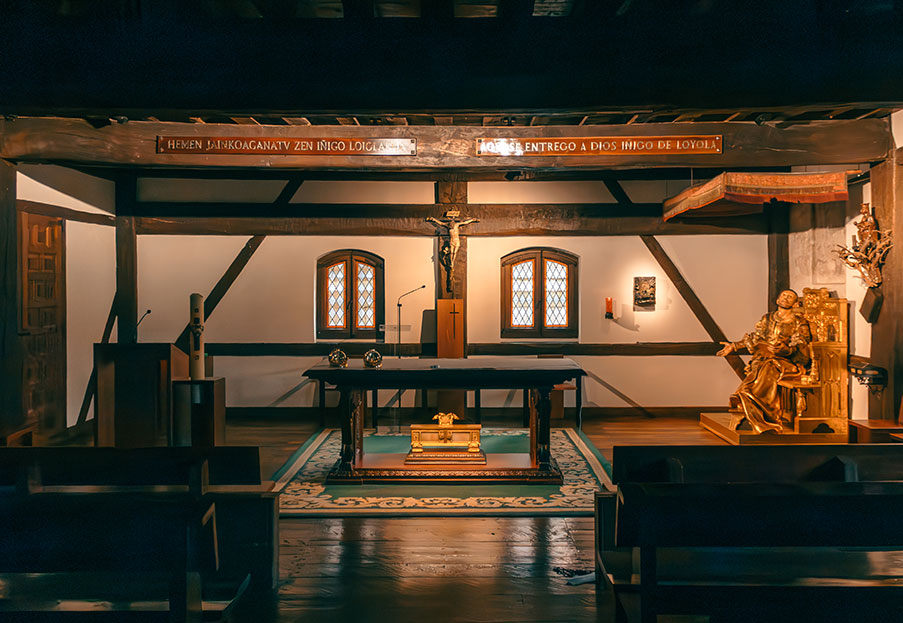Jacques Berthieu, Jesuit missionary and martyr who dedicated his life to the Madagascans
Feast day: 8 June
On their feast day, it’s worth reflecting on the lives and commitments of the saints and blessed of the Society of Jesus over the centuries. As the date of Fr Jacques Berthieu’s canonisation approached, on 21 October 2012, the former Superior General, Fr Adolfo Nicolás, had outlined the life of this Jesuit martyred in Madagascar and the meaning it could still have for today. Here is what he wrote.
Jacques Berthieu was born on 27 November 1838, in Auvergne in central France where his parents were farmers. He studied at the seminary of Saint-Flour and was ordained to the priesthood for this diocese in 1864. He was appointed vicar in Roannes-Sainte-Marie, where he remained for nine years. Because of his desire to evangelize distant lands, and to ground his spiritual life in the Spiritual Exercises of Saint Ignatius, he sought admission to the Society of Jesus and entered the novitiate in Pau in 1873. He sailed from the port of Marseille in 1875 to two islands in the vicinity of Madagascar, Réunion and Sainte-Marie, where he studied Malagasy and prepared himself for the mission.
In
1881, French legislation closed French territories to Jesuits, a measure which
compelled Jacques Berthieu to relocate to the large island of Madagascar. He
first worked in the district of Ambohimandroso-Ambalavao, in Fianarantsoa, the
southern part of the highlands. During the first Franco-Malagasy war, he
carried out various ministries on the eastern and northern coastlines. From
1886 on, he supervised the mission of Ambositra, 250 km South of Antananarivo,
and later, the mission of Anjozorofady-Ambatomainty, north of the capital. A
second war forced him to move further. In 1895, the Menalamba (“red shawl”)
revolt targeted Christians as well as the colonizers. Jacques Berthieu sought
to place the Christians under the protection of French troops. Deprived of this
protection by a French colonel whom Berthieu had chastised for his behavior
with the women of the country, Berthieu led a convoy of Christians towards
Antananarivo and stopped in the village of Ambohibemasoandro.

On 8 June 1896, the Menalamba entered the village, and finally found Jacques Berthieu who had been hiding in the house of a Protestant friend. They seized him and stripped him of his cassock. One of them snatched his crucifix from him, saying: “Is this your amulet? Is it thus that you mislead the people? Will you continue to pray for a long time?” He responded: “I have to pray until I die.” One of them then struck Berthieu’s forehead with a machete; Berthieu fell to his knees, bleeding profusely. The Menalamba then led him away for what would be a long trek. Because of his wound, Jacques Berthieu said to those who were leading him: “Let go of my hands so that I can take my handkerchief from my pocket to clean the blood from my eyes, because I can no longer see the way.” Along the way, when someone approached him, Jacques Berthieu asked him: “Have you received baptism, my son?” “No”, answered the other. Searching his pocket, Jacques Berthieu drew out a cross and two medals and gave them to him, saying: “Pray to Jesus Christ all the days of your life. We will no longer see each other, but do not forget this day. Learn the Christian religion and ask for baptism when you see a priest.”
After about a ten-kilometer hike, they reached the village of Ambohitra where the church Berthieu had built was located. Three times, they threw a stone at him, and the third time Berthieu fell prostrate. Not far from the village, since Berthieu was sweating, a Menalamba took Berthieu’s handkerchief, soaked it in mud and dirty water, and tied it around Berthieu’s head, as they jeered at him, shouting: “Behold the king of the Vazaha (Europeans)”. Some then went on to emasculate him, which resulted in a fresh loss of blood that exhausted him.
As
night drew near, in Ambiatibe, a village 50 kilometers north of Antananarivo,
after some deliberation, a decision was made to kill Berthieu. The chief
gathered a platoon of six men armed with guns. At the sight, Jacques Berthieu
knelt down. Two men fired simultaneously at him, but missed. Berthieu made the
sign of the cross and bowed his head. One of the chiefs approached him and
said: “Give up your hateful religion, do not mislead the people anymore, and we
will make you our counselor and our chief, and we will spare you.” He replied:
“I cannot consent to this; I prefer to die.” Two men fired again. Berthieu
bowed his head in prayer once more, and they missed him. Another fired a fifth
shot, which hit Berthieu without killing him. He remained on his knees. A last
shot, fired at close range, finally killed Jacques Berthieu.

As a missionary, Jacques Berthieu described his task thus: “This is what it means to be a missionary: to make oneself all things to all people, both interiorly and externally; to be responsible for everything, people, animals, and things, and all this in order to gain souls, with a large and generous heart.” His many efforts to promote education, to construct buildings, irrigation and gardens, and to develop agricultural training all give witness to these words. He was a tireless catechist. A young school teacher, who was accompanying him on a journey, noticed that even while on horseback, Berthieu still had his catechism open before him. The teacher asked him: “Father, why are you still studying the catechism?” He answered: “My son, the catechism is a book one can never understand deeply enough, since it contains all of Catholic doctrine.” In those days, once on foreign mission, there was no question of returning to one’s country of origin. “God knows”, Berthieu said, “how much I still love the soil of my country and the beloved land of the Auvergne. And yet God has given me the grace to love even more these uncultivated fields of Madagascar, where I can only catch a few souls for our Lord... The mission progresses, even though the fruit is still a matter of hope in some places, and hardly visible in others. But what does it matter, so long as we are good sowers? God will give growth when the time comes.”
A man of prayer, Jacques Berthieu drew his strength from it. His faith expressed itself in his devotion to the Blessed Sacrament, the Eucharist being the source of his spiritual life. He also professed a special devotion to the Sacred Heart to which he consecrated himself in Paray-le-Monial before departing for mission, and he became the apostle of this devotion among the Malagasy Christians. A fervent devotee of the Virgin Mary, he went on pilgrimage to Lourdes, and the rosary was his favorite prayer; it was this prayer that he recited while he was being led to his death. He also venerated Saint Joseph.
The
total and irreversible gift of his life in the following of Christ was at the
heart of his commitment. In the midst of trials, he retained his sense of
humor, and remained affable, humble and helpful. He liked to quote the Gospel
passage: “Do not be afraid of those who kill the body, but rather of those who
make one lose one’s soul.” (cf. Mt 10:28). In his instructions, he often spoke
of the resurrection of the dead. The faithful remembered the following sentence:
“Even if you are eaten by a crocodile, you will rise again.” Was this a
premonition of his own end? In fact, after his death, two inhabitants of
Ambiatibe dragged his body to the river Mananara, a short distance away from
the place of his martyrdom, and his remains disappeared.

The Society rejoices that the Church canonized one of our Jesuit companions, proposes him as a model to all the faithful, and invites them to seek his intercession. Certainly the historical context and the modalities of mission have changed from the end of the 19th century to our time; it is the role of historians to investigate more closely what actually happened and of hagiographers to identify the most significant aspects of holiness.
May the Holy Spirit help us put into practice the choices of Jacques Berthieu: his passion for a challenging mission that led him to another country, another language, and another culture; his personal attachment to the Lord expressed in prayer; his pastoral zeal, which was simultaneously a fraternal love of the faithful entrusted to his care, and a commitment to lead them higher on the Christian way; and finally, a life lived as gift, a choice lived out every day until the death which definitively configured him to Christ.
May
the intercession of Jacques Berthieu help us to recognize the strength that is
given to us in our weakness, so that we might live our vocation with fidelity
and joy, and give ourselves totally to the mission received from the Lord!

